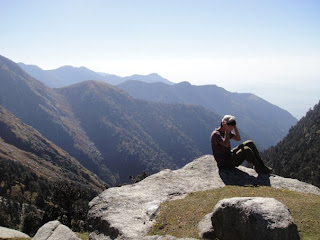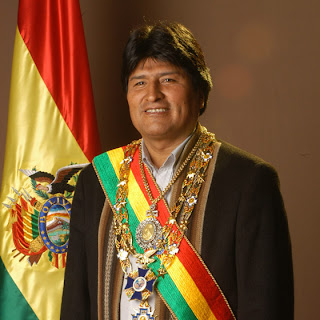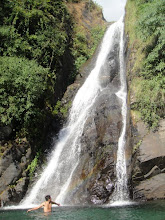Hace unos días el Presidente Barack Obama y Su Santidad el XIV Dalai Lama se encontraron el la Casa Blanca en Washington por un retrasado reunión que supuso suceder el año pasado. Sin embargo, esa reunión fue cancelada debido al deseo de los Estados Unidos de evitar provocar China antes de la primera reunión entre los jefes de los dos más poderosos países del mundo. Pese a que el Dalai Lama tiene una reputación mundial como un destacado líder que se dedica a la promoción de paz, China siempre se ha quejado cuando funcionarios de alto rango en gobiernos extranjeros recibieron al Dalai Lama como un invitado honorado, lo denunciando como un separatista que quiere socavar la autoridad de China sobre Tíbet y causar divisiones dentro del país.
Del mismo modo, las autoridades chinas les dieron ¨graves reclamaciones¨ contra la reunión de Sr. Obama y el Dalai Lama, pero Washington, por su parte, pareció haber estar apostando de que su relación con China fuera suficiente maduro para prevenir que problemas serias subieran desde este acontecimiento.
Vale notar que esta apesta de Washington ocurrió en un tiempo bien peligroso, tras un serie de incidentes que ya estaban amenazando la estabilidad de las relaciones entre las dos superpotencias, incluyendo, entre otras, la recién venta de armas de los E.E.U.U. a Taiwán y la continua devaluación intencional de el Yuan de China que ha contribuido al inequilibrio de comercio que ha hecho mucho daño a la economía estadounidense. La nueva administración del Presidente Obama ha gastado mucho esfuerzo para pretender mantener una relación amable con China, pero como la coyuntura de política nacional le está forzando convertirse más firmo, parece que tu nuevo estilo de liderazgo en tiempos desesperados está manifestándose en el ámbito de asuntos extérnales también.
De todo caso, estoy escribiendo sobre este tema porque desde mi viaje a la capital del Gobierno Tibetano en Exilio en Dharmasala, India, me ha importado mucho la lucha por libertad y soberanía de Tíbet. Lo que pasó fue que en 1950, el infame líder comunista Mao Zedong siguió su implacable avance hacia dominación total e invadió Tíbet. Según R.J. Rummel, historiador y finalista del Premio Nobel de Paz, las políticas de Mao Zedong a lo largo de su gestión de China mataron alrededor de 77 millones de personas, más del número de muertos causados por Hitler y Stalin. Mucha de la gente asesinada por Mao era de Tíbet.
Los ejércitos de China avanzaron y derrotaron a la resistencia esporádica de Tíbet con facilidad, y en un santiamén ocuparon todo el Tíbet. Cualquier fuerza que Tíbet podía organizar no tenía ninguna posibilidad de prevalecer contra las de China, porque los tibetanos nunca habían luchado en una guerra antes. Sencillamente no tuvieron que luchar en el pasado: Siempre habían vivido en armonía con el uno al otro de acuerdo con las principales de Budismo. Habían cuidado a la naturaleza de manera sostenible, viviendo vidas tranquilas y sin conflicto. Todo eso cambió cuando la codicia de Mao Zedong le llevó a conquistar un terreno que no la perteneció.
Desde entonces, China ha aplicado continuamente la política típica de ¨asimilación¨ que aplicaban los poderes imperialistas contra la población nativa en la época de imperialismo. En otras palabras, China ha estado lanzar un ¨genocidio cultural¨ en las palabras del normalmente blando Dalai Lama, que tiene como intención erradicar la identidad cultural de los nativos con fines de doblegar sus deseos de autonomía y soberanía. Los militares japoneses ocupando Taiwán en la Segunda Guerra Mundial pretendían hacer lo mismo cuando sólo permitieron el uso de japonés como medio de comunicación en las escuelas. De la misma manera, Inglaterra, Francia y sus otras cómplices europeos trataban de forzar sus idiomas y culturas sobre la gente de sus colonias antes de que se volvió obvio que no funcionaría esta forma de política.


Hasta ahora, los tibetanos aún no tienen ni la libertad de habla ni la de religión. La mayor parte monasterios y textos sagrados tibetanos fueron quemados por los soldados chinos durante la invasión de 1950, y los pocos que quedan son sometidos a la vigilancia constante de la autoridad china. El gran templo de Jokhang en Lhasa, la capital anterior de Tíbet, se ha convertido en una atracción turística que gana ingresos para que los chinos puedan seguir financiando su ocupación de Tíbet.
Hablando de atracciones turísticas, no se puede viajar en Tíbet: Temido que los turistas verán la situación verdadera de la ocupación y difundirla entre la comunidad internacional, la autoridad china mandó que sólo puedas viajar junto con un grupo guiado por un representante del gobierno china, quien sólo te muestra lo que el gobierno chino quiera mostrarte. Éste me dijo un amigo de Corea del Sur que por alguna manera pude eludir la autoridad china y entrar Tíbet sin la vigilancia de los chinos. Tae-Yoon, como se llamó, también tomó un bus que duró 42 horas desde la capital de Nepal hasta la capital de India, y este bus de que estamos hablando era un bus típico del subdesarrollado India: sin calefacción, asientos suaves y espacio para estrechar las piernas. ¿Qué loco, no?
De todos modos, a pesar de todas las tragedias que han sufrido los tibetanos, su líder espiritual ni siquiera la llama a China como ¨el enemigo.¨ Según el Dalai Lama, el enemigos reales son las emociones aflictivas que existen en cada uno de nosotros, y hasta que los eliminemos completamente de nuestras corazones, la violencia y injusticia seguirán manifestándose en el mundo. Al principio, debo admitir, esta ideología suena demasiada idealista e impráctico para nuestra época. Pero cuando examiné cuidadamente el bienestar de los tibetanos, me di cuenta que no sólo era posible la aplicación de esta enseñanza tan noble, sino también era el método más práctico y efectivo para mejorar nuestro mundo. Fue una realización de pesa que cambiaría mi vida para siempre.
 Es que cuando yo interactuaba con la gente tibetana, observaba más risas y sonrisas que cualquier de la gente de todos los países que he viajado a en mi vida — y créeme, he viajado bastante a lo largo de mi vida. Pese a las tragedias de sufrieron su raza, los tibetanos siguen tratando todas las personas con increíble generosidad y confianza, como si todos fueran de sus propias familias. Nunca fracasan de brindar una sonrisa sincera a quienquiera se encuentra.
Es que cuando yo interactuaba con la gente tibetana, observaba más risas y sonrisas que cualquier de la gente de todos los países que he viajado a en mi vida — y créeme, he viajado bastante a lo largo de mi vida. Pese a las tragedias de sufrieron su raza, los tibetanos siguen tratando todas las personas con increíble generosidad y confianza, como si todos fueran de sus propias familias. Nunca fracasan de brindar una sonrisa sincera a quienquiera se encuentra. En vez de odiar sus opresores, los monjes los miran con compasión y el deseo de que ellos puedan darse cuenta de que no sólo están causando sufrimiento a los tibetanos, pero también aún más a ellos mismos. Aunque tal vez esté dudando otra vez la viabilidad de pensamientos tan altruistas, según estos budistas serán ellos que disfrutan de beneficios del largo plazo, porque ellos están deshaciéndose de mala karma cuando sus opresores la están acumulando. Para los de ustedes que no son familiares con el concepto de karma en budismo, las budistas creen que existe una ley universal que gobierna el mundo y mantenerlo en equilibrio, como la ley de gravedad. De acuerdo de esta ley de karma, todas las cosas que te están sucediendo son los resultados de tus acciones pasadas, y todas las casas que te sucederán serán determinados por tus acciones presentes. En otras palabras, cosechas lo que siembras. Si haces algo bueno, recibirás algo bueno en retorno en el futuro. Si haces algo malo, sufrirás la consecuencia en una manera o otra: no hay forma de eludir los resultados de karma.
De todos modos, me gustaría escribir más acerca del tema de los creencias budistas de Tíbet, porque me impresionaron muchísimo como ninguna otra. Quiero contar mi experiencia en un centro de meditación en Dharmasala, India, donde aprendí mucho sobre esta fascinante filosofía. Pero si sigo escribiendo en este blog, me agotaré traduciendo todo… es suficiente por ahora concluir por decir que me alegra mucho que se reunieron el Presidente Obama y el Dalai Lama, porque son mis dos líderes más admirados del mundo. Espero que Obama pudiera obtener un poco de la sabiduría de incalculable valor desde el Dalai Lama; la ayudaría mucho en estos tiempos de crisis. El Dalai Lama es verdaderamente alguien especial. Si tienes tiempo, te recomiendo leer unos de sus libros... Lo gozarás :)
In My Own Words by His Holiness the Dalai Lama: An Introduction to His Teachings and Philosophy
How to See Yourself As You Really Are

The Chessmaster Mariano.





.jpg)










